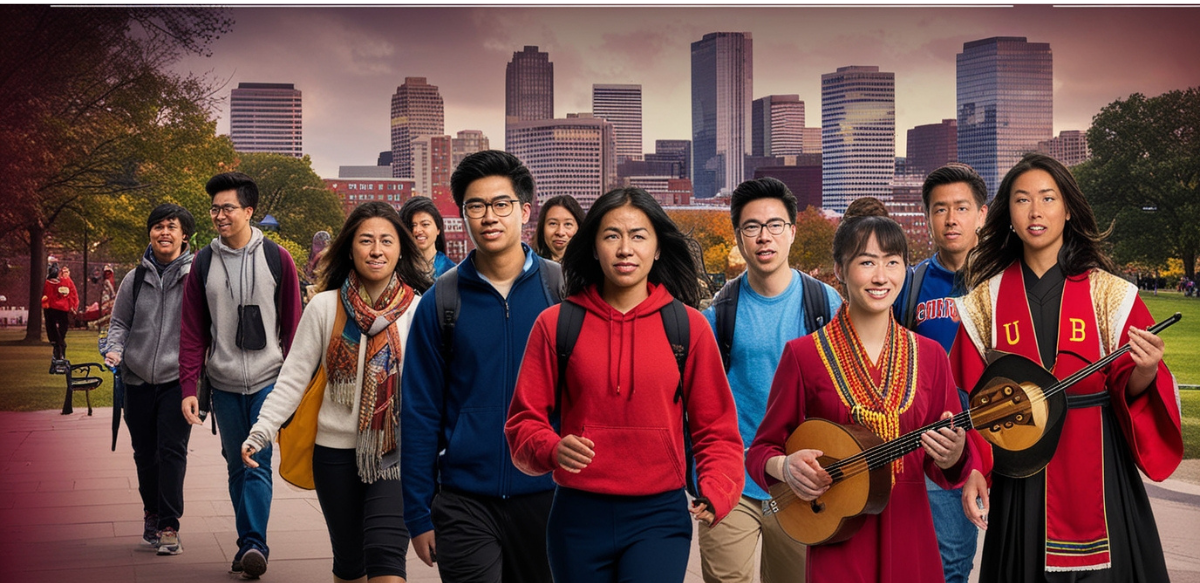
With names like Harvard, MIT, BU, and Northeastern on the map, Boston's a top pick for students around the world. It’s exciting, no doubt. But let’s be honest—it’s also a lot. For international students, moving here isn’t just about classes and lectures. It’s a whole new world to figure out—from adjusting to local culture to navigating student housing in Boston’s crazy rental market.
And if you’re not prepared? Things can get overwhelming fast. That’s why we’ve pulled together this guide. Here are 7 real challenges international students often face in Boston—and a few ways to make the ride a little smoother.
Cultural Adjustment
Let’s be real—culture shock hits harder than expected. Even in a global city like Boston, the small stuff can throw you off. The way people talk, how casually they greet you, or just how fast everything moves—it takes a minute to adjust. And yeah, feeling out of place? Totally normal. What helps? Getting involved. Join a campus club, go to a Red Sox game, or just wander around the Freedom Trail. Weirdly enough, the more you explore, the more the city starts to feel like yours.
Language Barriers
So, you’ve studied English for years, maybe even aced your IELTS. But then you land in Boston—and suddenly you’re hearing words like “wicked” used in totally unexpected ways. Yeah... welcome to American English, Boston edition. Here’s the thing: language barriers go beyond grammar and vocabulary. It’s the slang, speed, and cultural nuance that trip up even fluent speakers. Following are the various ways through which you can overcome the language barriers:
Financial Concerns
Boston is pricey. Between tuition, rent, and everything in between, money becomes a real stressor for most international students. And yeah, it adds up fast. Rent alone? You’re probably looking at $1,200 to $2,000+ per month for student apartments in Boston. That’s just for housing. Add groceries, transport, laundry, phone bills, and textbooks? You’ll start to feel the pinch real quick.
And to make it trickier—your visa probably limits how many hours you can work, which means less room to earn on the side. Scholarships, campus jobs, and budgeting tools can help—but it’s essential to plan early and monitor spending closely.
Housing Issues
Finding student housing in Boston is often one of the biggest headaches for newcomers. The market is competitive, expensive, and moves fast.
Look for verified platforms or university housing boards and consider living slightly outside the city center for more affordable options. Whether you’re searching for dorms or private student apartments in Boston, starting early is key.
Social Integration
Making friends in a new country isn’t as easy as walking into a lecture hall and saying hi. It takes time—and a little courage.
Joining societies, sports teams, or even volunteer programs can help bridge the gap. And don’t underestimate the value of other international students—they’re going through the same journey and can become your biggest support system.
Academic Adjustments
Walking into your first American classroom might feel… different. Like, really different. There’s a good chance the teaching style isn’t what you’re used to.
But here’s the thing—you’re not expected to know it all on day one. Most unis in Boston run orientation weeks, and they usually have:
7. Navigating the System
U.S. bureaucracy isn’t always straightforward. From visa renewals to health insurance paperwork, logistics can feel like a full-time job.
Reach out to your school’s international student office—they're there to help with exactly this kind of stuff. Don’t try to figure it all out alone.
Conclusion
Adjusting to life in Boston isn’t always easy. You’ll mess up a train route, struggle with slang, maybe even feel out of place at first. But that’s part of it. Every weird, awkward, frustrating moment? It’s also a chance to grow. Whether you’re still hunting for student housing in Boston or just figuring out how to blend in without losing yourself—just remember, you’re not doing this alone. Loads of other students are in the same boat. So yeah, Boston’s intense. It’ll challenge you. But it’ll also teach you, push you, and probably leave you with stories you’ll be telling for years.

このページはWepageで作成されています。今すぐ無料でホームページを作ってみませんか?
Wepageは、HTMLの知識がなくても、誰でも簡単にホームページを作成できます。詳しくはこちら